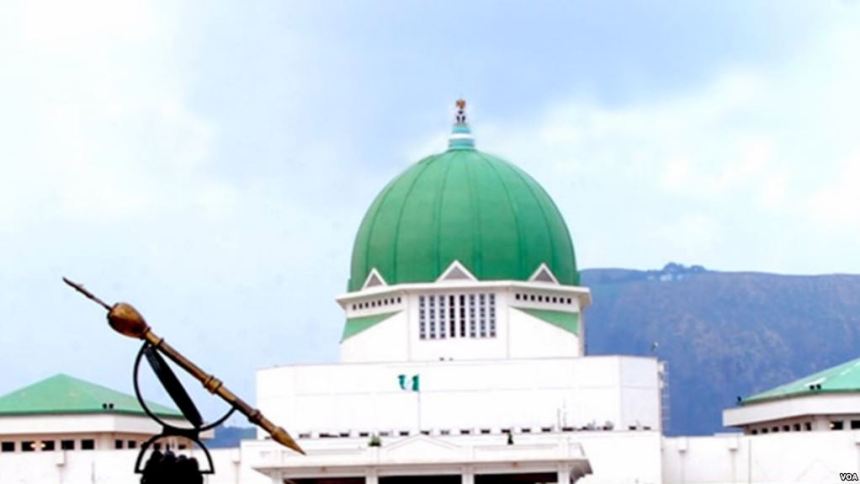Some serving members of the National Assembly have hatched a plan to siphon monies earmarked for their zonal interventions before the expiration of the eight National Assembly, thereby abandoning the constituency projects they have been fully mobilized to execute, findings by IGBERE TV has revealed.
Lawmakers in this category, according to our source, are National Assembly members who lost their re-election bid.
They are said to have perfected the plan as a means of ‘recovering’ monies lost to electioneering campaigns in the last general elections.

Speaking with IGBERE TV, a source in the Ministry of Power, Works and Housing who asked not to be named, said members of the Senate, especially those from Southern Nigeria are worst hit in this desperate looting scheme.
He alleged that while some of the lawmakers have formed an unholy alliance with the Minister of Finance, Zainab Ahmed, who is also not sure of being retained in Buhari’s second term, others have shown lack of concern but perfecting last minute plans to go home with the funds appropriated for such projects.
Those in the less concerned category according to our source, are the Senators representing Abia North, Mao Ohuabunwa; Anambra Central, Victor Umeh; Kwara Central, Bukola Saraki; Akwa Ibom North-West, Godswill Akpabio, amongst others.
The source also alleged that some Senators from the Northern region are using their closeness to the Finance Minister to complete some of their zonal interventions, while the monies meant for these projects lie in their pockets.
He, however, wondered why the Minister will abandon so many of the projects initiated by the Federal Government to finance those that the Senators have been fully mobilised to execute in their constituencies.
Efforts to reach the Spokesman of the Senate, Senator Sabi Abdullahi for comments proved abortive. Similarly, calls placed to the office of the Minister of Finance went unanswered and she was yet to reply messages sent to her phone as at press time.
Constituency or Zonal Intervention Projects in Nigeria refers to developmental projects sited in the constituencies of members of the State Houses of Assembly, members of the House of Representatives or Senators by various Ministries, Departments, and Agencies (MDAs) of government as appropriated in the budgets of the Federation or State.
The intention of the scheme is to ensure equity in the allocation of projects nationwide. In achieving this, the National Assembly yearly budgets an amount of which portions are ceded to lawmakers to execute projects in their constituencies. In recent times, the budget for Zonal Intervention Projects has been N100 billion annually. However, the whole process of sharing the N100 billion has been shrouded in secrecy since the introduction of the scheme.
Billboards bearing the inscription: ‘This project was funded by Senator/Honourable XYZ,’ are familiar sights in Nigeria. Planting those kinds of signboards is the common method Federal lawmakers use in communicating how they are supposedly using funds allocated to them under the Zonal Intervention Project system. Such messages, usually left near ongoing, abandoned or completed projects, derive financial strength from a special fund earmarked for Zonal Intervention Projects of Federal lawmakers in Nigeria’s appropriation act.
In recent years, the budget of the Zonal Intervention Projects has been N100 billion, shared among the 469 Senators and members of the House of Representatives in the six geo-political zones. Specific details on the projects, including project type, cost, and target sector have been kept secret in the past because lawmakers engage in self-enriching deals in the implementation of the projects. Thus constituents hardly know what should statutorily accrue to them.
For many constituencies, there has never been transparency around which projects were budgeted for, the funds released, or the estimated completion time for them. Often times, constituents ‘worship’ their lawmakers whenever a project is completed with the believe that they used their personal funds in executing the projects. In reality however, this is not the case.
IGBERE TV reliably gathered from trusted sources in the National Assembly that the annual N100 billion is always shared on an agreed 60:40 percent ratio by the two legislative chambers. The House of Representatives takes the bulk with N60 billion and the Senate with N40 billion. By interpretation, the 360 members of the lower chamber have N60 billion to initiate, implement or complete projects in their constituencies while the 109 members in the Senate have N40 billion to do same.
Credit: Igbere TV






